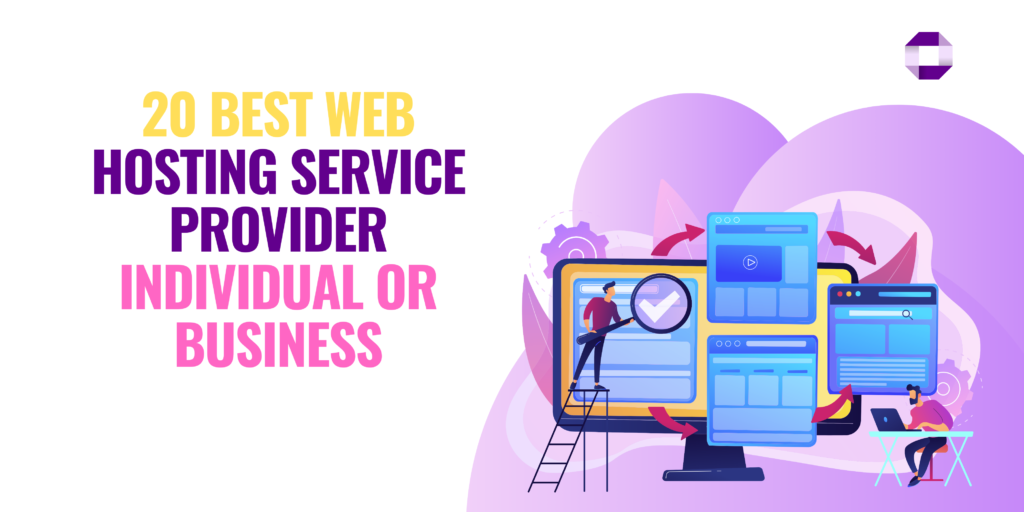In today’s fast-paced business environment, effective project management is more crucial than ever. With numerous project management software options available, choosing the right one can be challenging. To simplify your decision-making process, we’ve compiled a list of the 15 best project management software providers and complete reviews of each. This guide will help you identify which platform aligns with your business needs, budget, and team size.
1. Trello
Overview:
Trello is a user-friendly, visually-oriented project management tool that uses boards, lists, and cards to help teams organize their workflow.
Key Features:
- Drag-and-drop interface
- Integration with various apps (Slack, Google Drive, etc.)
- Customizable project boards
- Automation capabilities with Butler
Pros:
- Simple and intuitive user interface
- Free tier available
- Great for small teams and personal projects
Cons:
- Limited functionality for complex projects
- Not ideal for teams requiring advanced reporting features
Best For:
Small teams and individuals looking for a straightforward project management solution.
Link: Try Trello Here
2. Asana
Overview:
Asana is a versatile project management tool that helps teams streamline tasks and improve accountability.
Key Features:
- Task assignment and due dates
- Subtasks and checklists
- Advanced timeline and calendar views
- Integration with many workplace tools
Pros:
- Flexible and customizable workflows
- Excellent for collaboration
- Strong support for remote teams
Cons:
- Can be overwhelming for new users
- Pricing can escalate with advanced features
Best For:
Medium to large teams that require a robust project tracking system.
Link: Explore Asana Here
3. Monday.com
Overview:
Monday.com is a work operating system that empowers organizations to manage projects and workflows effectively.
Key Features:
- Color-coded dashboards
- Automation for routine tasks
- Customizable workflows and templates
- Time tracking and reporting tools
Pros:
- Highly visual and easy to use
- Great automation features
- Excellent customer support
Cons:
- Can be pricey for smaller teams
- Some features may be too advanced for simple projects
Best For:
Organizations of all sizes needing a comprehensive management solution.
Link: Get Started with Monday.com
4. Basecamp
Overview:
Basecamp simplifies project management by bringing teams together with a shared interface for collaboration.
Key Features:
- To-do lists and milestones
- Group chat and message boards
- File sharing capabilities
- Automatic check-ins
Pros:
- Easy to use and set up
- Centralized communication platform
- Flat pricing model for unlimited users
Cons:
- Limited advanced features
- Users may find it too basic for complex projects
Best For:
Small teams and startups looking for a straightforward, cost-effective solution.
Link: Try Basecamp Today
5. Wrike
Overview:
Wrike is an advanced project management software that offers robust tools for collaboration and real-time updates.
Key Features:
- Gantt charts and interactive timelines
- Custom dashboards and reports
- Time tracking features
- Workflow automation
Pros:
- Good for managing complex projects
- Highly customizable
- Strong reporting tools
Cons:
- Steeper learning curve
- Prices can be high for full functionality
Best For:
Larger teams with complex projects requiring detailed management.
Link: Discover Wrike Here
6. ClickUp
Overview:
ClickUp is an all-in-one project management tool that combines tasks, docs, goals, and chat within one flexible platform.
Key Features:
- Customizable views (List, Box, Calendar, Gantt)
- Time tracking and integration with various tools
- Task assignments and reminders
- Goal tracking
Pros:
- Highly flexible with a rich feature set
- Affordable pricing tiers
- Excellent collaboration features
Cons:
- Might take time to learn the full potential
- Can feel overwhelming due to the number of features
Best For:
Teams of various sizes looking for a comprehensive project management solution.
Link: Check Out ClickUp
7. Jira
Overview:
Jira, developed by Atlassian, is specifically designed for software development teams, offering agile project management features.
Key Features:
- Scrum and Kanban boards
- Customizable workflows
- Bug tracking and issue management
- Integration with Confluence and Bitbucket
Pros:
- Ideal for Agile and Scrum methodologies
- Strong reporting features
- Excellent for technical teams
Cons:
- Complexity can be daunting for non-tech teams
- Steeper pricing model for larger teams
Best For:
Software development teams implementing Agile methodologies.
Link: Explore Jira Here
8. Smartsheet
Overview:
Smartsheet combines the familiarity of a spreadsheet with the power of project management tools.
Key Features:
- Grid, card, Gantt, and calendar views
- Collaboration tools and automation
- Real-time reporting
- Integration with various apps (Salesforce, Slack)
Pros:
- Familiar interface for users accustomed to spreadsheets
- Strong reporting and analytics features
- Flexible project tracking methods
Cons:
- Complexity in advanced features
- Can become costly for larger teams
Best For:
Teams comfortable with spreadsheet interfaces needing advanced features.
Link: Try Smartsheet Here
9. Teamwork
Overview:
Teamwork is designed for client work and includes features tailored for agencies and professional service teams.
Key Features:
- Task management with sub-tasks
- Time tracking and billing features
- Collaboration tools
- File sharing and comments
Pros:
- Strong focus on client management
- Good reporting options
- Excellent for agencies and freelancers
Cons:
- UI might be less intuitive than competitors
- Pricing can be steep for advanced features
Best For:
Agencies and teams that require client management capabilities.
Link: Check Out Teamwork
10. Microsoft Project
Overview:
Microsoft Project is a powerful project management tool that helps users manage schedules, resources, and budgets effectively.
Key Features:
- Gantt charts and scheduling tools
- Resource management capabilities
- Reporting features
- Integration with Microsoft 365
Pros:
- Robust features for complex projects
- Familiarity for Microsoft users
- Extensive reporting tools
Cons:
- Can be overwhelming for beginners
- Higher price point compared to competitors
Best For:
Organizations with existing Microsoft infrastructure and user base.
Link: Explore Microsoft Project Here
11. Zoho Projects
Overview:
Zoho Projects is part of the Zoho suite, offering project management solutions tailored for small to medium-sized businesses.
Key Features:
- Task management and time tracking
- Gantt charts and milestones
- Collaboration tools and file sharing
- Integration with Zoho apps
Pros:
- Affordable pricing plans
- Easy to use
- Comprehensive feature set for small teams
Cons:
- Limited advanced reporting capabilities
- Integrations with non-Zoho apps can be complex
Best For:
Small to medium-sized businesses looking for an integrated software solution.
Link: Try Zoho Projects Here
12. Airtable
Overview:
Airtable blends the simplicity of a spreadsheet with the depth of a database for effective project management.
Key Features:
- Customizable templates
- Grid, calendar, and Kanban views
- Collaboration features
- Extensive integration capabilities
Pros:
- Highly customizable and adaptable
- User-friendly interface
- Strong visual organization tools
Cons:
- Advanced functionalities may require more learning
- Premium features can increase costs
Best For:
Teams and individuals looking for a flexible and customizable project management solution.
Link: Explore Airtable Here
13. ProofHub
Overview:
ProofHub is an all-in-one project management tool designed to help teams collaborate and get tasks done efficiently.
Key Features:
- Task management and time tracking
- Discussions and chat features
- File sharing and online proofing
- Customizable project templates
Pros:
- Unlimited users for a flat fee
- Comprehensive feature set
- Easy to use
Cons:
- Limited third-party integrations
- Some features may feel basic
Best For:
Teams and businesses looking for a straightforward, budget-friendly solution.
Link: Get Started with ProofHub
14. Workzone
Overview:
Workzone is a powerful project management tool that focuses on team collaboration and visibility.
Key Features:
- Project templates and task management
- Gantt charts and reporting features
- Document sharing and version control
- Custom dashboards
Pros:
- Strong emphasis on collaboration
- Excellent customer support
- Flexible pricing options
Cons:
- Interface may feel outdated
- Can become expensive for larger teams
Best For:
Teams and organizations needing collaboration-focused project management solutions.
Link: Check Out Workzone Here
15. Notion
Overview:
Notion is an all-in-one workspace that combines note-taking, task management, and database capabilities.
Key Features:
- Customizable databases and pages
- Task management with Kanban boards
- Collaboration and sharing options
- Integration capabilities with various tools
Pros:
- Extremely flexible and adaptable
- Clean and modern interface
- Robust community and template library
Cons:
- Steeper learning curve for advanced features
- Limited built-in project management functionalities
Best For:
Individuals and teams looking for an all-in-one workspace to manage various projects and tasks.
Link: Explore Notion Here
Conclusion
Choosing the right project management software can make a significant difference in your team’s productivity and project success. The solutions listed above cater to various needs, sizes, and budgets. Whether you are looking for simplicity, collaboration features, or robust reporting tools, there is a platform well-suited to your requirements.
Explore the options and consider signing up through our affiliate links to unlock amazing features tailored just for you. Happy project managing!


